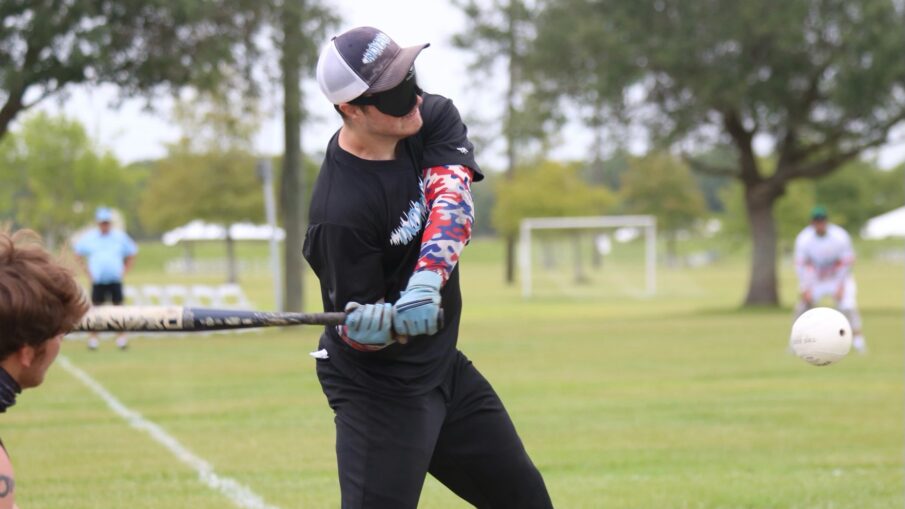Have you ever thought to yourself while playing something “This is so easy I could do it blindfolded?” Well, you might get a humbling chance.
Frederick Community College’s MOSAIC Center is hosting a special baseball game at the college’s softball field at noon Thursday, April 13, inviting all interested students to participate in a game against students of Maryland School for the Blind.
For sighted FCC students who want to participate, there is one stipulation: They need to play blindfolded.
But how does one play baseball with both teams unable to see the field? Well, that’s because this is no ordinary baseball game, what’s being played is called “Beep Baseball.”
Beep Baseball, first organized by the National Beep Baseball Association (NBAA) in 1976, is a form of baseball that allows visually impaired players to play baseball.
How it works is that the ball, which is a large softball, and the bases, usually foam towers, are both wired with speakers that are constantly emitting a buzzing noise. By using these audio cues, it allows visually impaired players to hear the ball that they need to hit and catch, and the bases they need to run to.
“I saw it in a video a couple of years ago,” said Cody Rosenbarker, program manager of the student affairs initiative. “I was immediately fascinated just watching what was baseball in a lot of respect just changed slightly in order to allow visually impaired people to play. I kept it in the back of my mind for years, and when I came here (at FCC) I figured now would be a great time to do it.”
Rosenbarker said through his program, students are introduced to various perspectives and needs.
“One of the things I want to be the most careful with is that Beep Baseball, and anything that we do with disability, is not supposed to create pity,” he said. “We’re not trying to have students say ‘Oh look at these poor blind people.’ We’re trying to show that with simple accommodations, blind people can play the same games we can and show the amazing adaptations they use in order to find success in what they go through. They are just as able and capable of doing anything; as long as we have these simple accommodations, we’re able to play together.”
This semester, Rosebarker has been using activities hosted by the MOSAIC center in order to share with students of FCC broader topics. In the future, he plans on further expanding those topics.
“We want to touch on all aspects of human life eventually,” he said, “the first thing people think of when they hear the word diversity is racial, ethnic, and cultural diversity, and we’ve done a lot of that through the art exhibits last semester, but we’ve been trying to cover more topics such as parenting status, disabilities, and we have more planned on a board that I want to cover soon such as gender identity and sexual identity.”
He said they want to cover topics “such as spirituality, faith, ethnicity, health, addiction, victims, social status, disability, gender and sexuality, occupation, lifestyle, and family. We want to cover all of these so that people on campus feel welcomed and belonged.”

